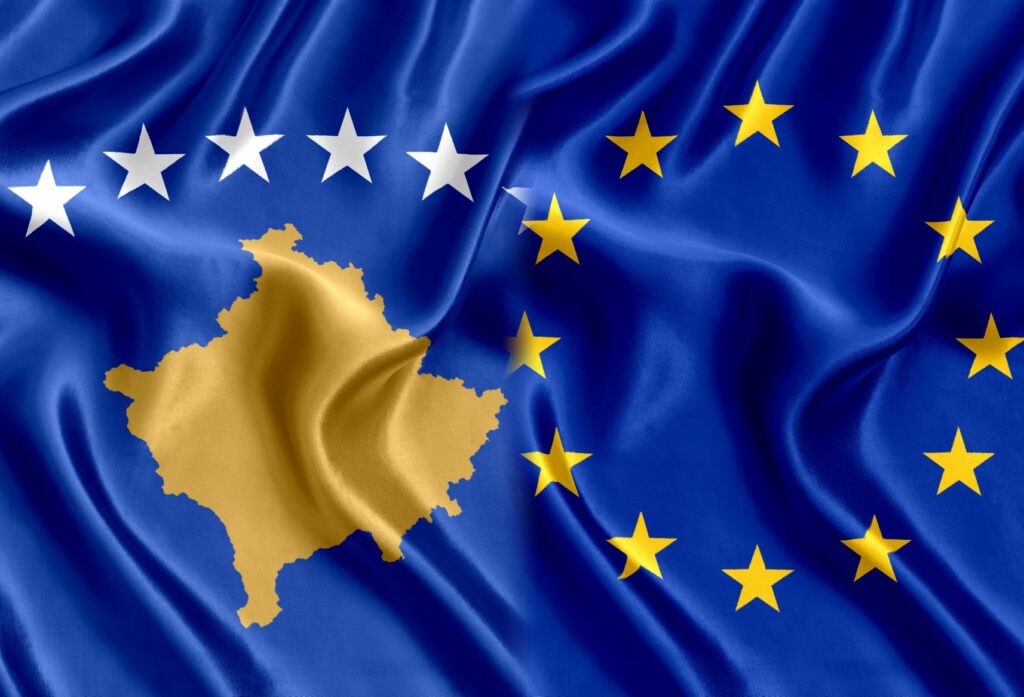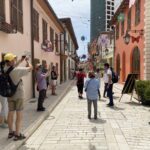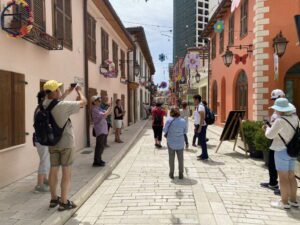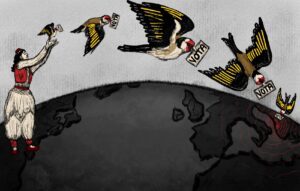Optimistic statements to set in motion the decision-making of the European Union (EU) regarding visa liberalization for Kosovo, are not expected to be accompanied by concrete actions towards the finalization of this issue. The issue of visas is officially not on the agenda of the EU Summit, but the provision of political support for this process is not ruled out. At the Summit starting today (Thursday) and continuing on Friday in Brussels, the agenda is to review the application of Ukraine, Georgia and Moldova for EU membership.
European diplomats have called for Kosovo to have its visas lifted without further delay. The German government’s special envoy for the Western Balkans, Manuel Sarrazin, has said that Kosovo should be recognized for its reforms.
President Vjosa Osmani, who will represent Kosovo at the Summit, said that she travels with hope, but not with great expectations. On the eve of this event, Osmani met with the President of the European Parliament, an institution that has repeatedly repeated the request for visa liberalization.
In addition to the European Parliament, the European Commission in 2018 had found that all criteria for visa liberalization have been met, but so far there has been a lack of decision-making in the EU Council.
The government has often blamed the European Union for failing to lift Kosovo visas.
But they have refused to take responsibility for the manipulations around the dates.
When in May 2015 the European Commission recommended the abolition of visas, but on the condition that by the time of the European Parliament meeting Kosovo had ratified the demarcation agreement with Montenegro and demonstrated commitment to the fight against corruption, the government in Pristina had opened champagnes almost was given the green light. The big party took place in the cabinet of the former Minister of Integration, Bekim Çollaku. He left this department without fulfilling his promise, joining the cabinet of former President Hashim Thaçi. Thaçi also reduced the date when Kosovars could go to the Schengen area without visas in a matter of hours. But two terms at the head of the Government, half a term in the Mustafa Government and almost one term at the head of the Presidency, Thaçi did not fulfill his promise.
The same approach was taken after Isa Mustafa was put in charge of the Government. He repeatedly insisted that Kosovo had done its homework. Since then, three years have had to pass and two governments have to be replaced to ensure that all the technical criteria are met.
The tradition of promises and wishes for visa liberalization was continued by Prime Minister Ramush Haradinaj. He even said that, three months after coming to the Government, Kosovars will be able to move without visas within the Schengen area. Haradinaj also voted for the demarcation agreement with Montenegro, which as an opposition he had opposed by all means, due to claims that Kosovo loses 8 thousand hectares of land. He was satisfied with a statement signed by Presidents Thaçi-Vujanovi., According to which corrections will be made in the direction of Kulla and Çakorri.
Due to non-compliance with the criteria, Kosovo lost the opportunity to enter the Schengen area together with Georgia and Ukraine, in 2017.
Although not officially, the issue of liberalization is related to the context of the Kosovo-Serbia dialogue. The EU continues to insist on the commitment of the parties towards reaching a final agreement.
A draft of the conclusions published by Radio Free Europe confirms that no developments are expected regarding visas for Kosovo, while a special paragraph is dedicated to the dialogue between Kosovo and Serbia and the resolution of disagreements.
“The European Council reaffirms the urgency of making significant progress in resolving outstanding bilateral and regional issues, in particular in the dialogue between Belgrade and Pristina on the normalization of relations between Serbia and Kosovo,” the draft said.
The draft conclusions prepared for the summit also speak about the idea of creating a European Political Union.
“The Council held a strategic discussion on the European Union’s relations with partners in Europe. Discussed the proposal for the creation of a European Political Community. The aim is to provide a platform for political coordination of European countries across the continent. “It can be valid for the countries of the Western Balkans, the countries associated with the eastern neighborhood, the EFTA countries and all the countries with which we have close ties,” the document, which is expected to be approved by EU leaders, said. of.
Due to dissatisfaction with the EU approach, participation in the Summit was questioned by Albania, Northern Macedonia and Serbia. But the Prime Minister of Albania, Edi Rama, confirmed on Wednesday that he will still participate.
He has warned that he will talk about the “Open Balkans” and Bulgaria, how the latter is holding Albania hostage.








